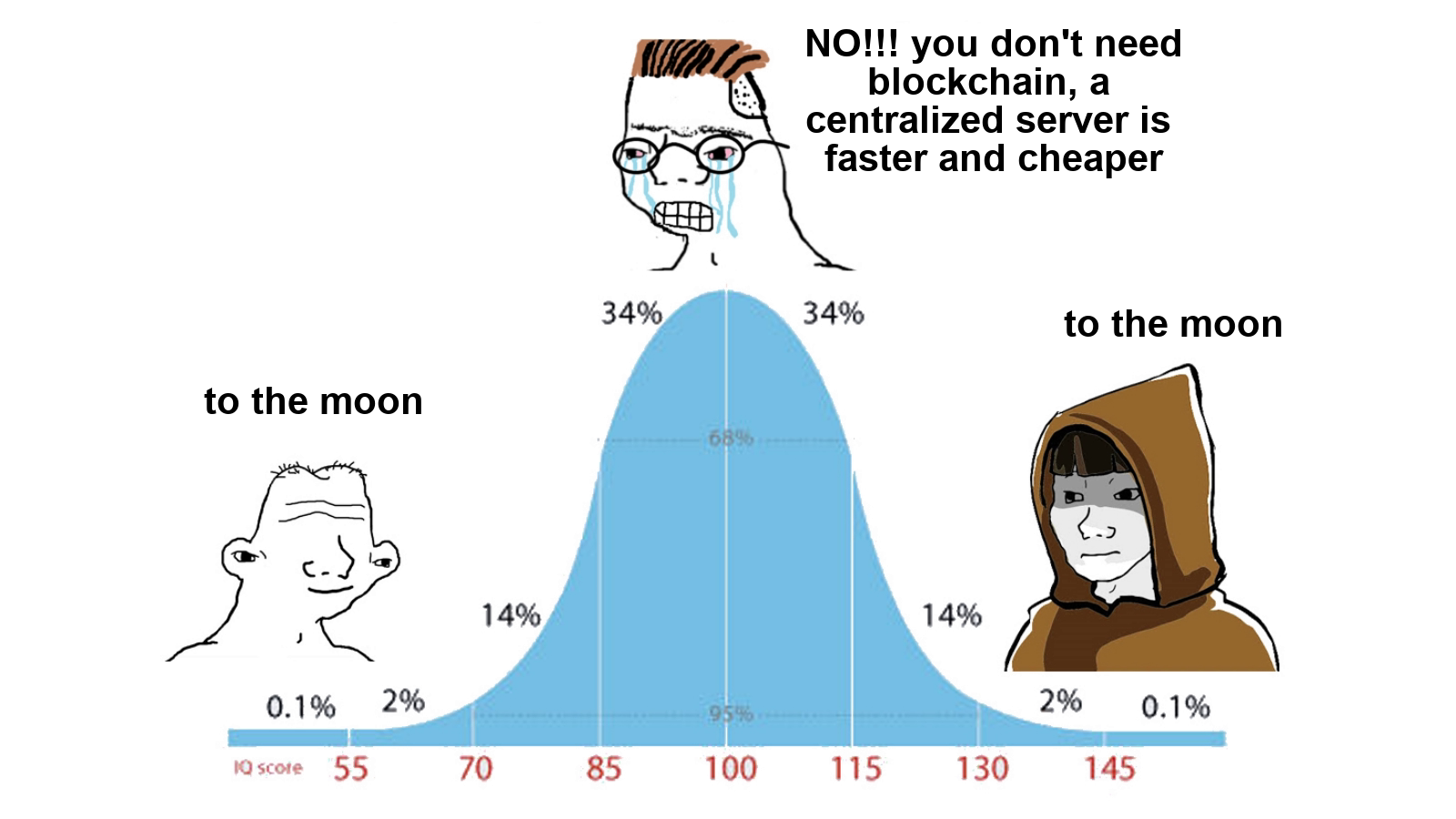Thoughts from my first web3 conference

In the spirit of documenting my thought process instead of already-formed thoughts, here are my impressions from the recent DevConnect – a major week-long gathering of the web3 developer community in Amsterdam.
- Many web3 companies are default-global. Most don't mention where they are based, because it doesn't matter. The community is organized more around ideas than geography.
- Relatedly, it seems like web3 companies are especially embracing the barbell strategy of location. On the macro level, communities connect purely remotely most of the time and then fly together from across the world a few times a year to events like DevConnect to be fully present. Within a company, teams work 100% remotely most of the time and meet in person intentionally for crucial discussions and team-building. Combining the two extremes feels like a better combination than a consistent 0ffice presence. There are trade-offs, of course, but for certain lifestyles (parents; nomads) this works really well.
- With this dual strategy, it is actually important to get out of the Discord cave occasionally to see your customers, partners, and colleagues in flesh and bones. Skipping in person for a long time detaches you emotionally, which is bad for focus and motivation. This made me think about how we should incentivize this at NFTPort – most likely with a larger event/conference budget per employee, and encouraging people to take the time for it.
- The community is amazingly friendly and supportive. Much more so than it ever felt in AI, or web2 generally. Perhaps that's because most people in the field are still early adopters and hackers. Or maybe because the pie is growing fast so nasty fights aren't necessary?
- There are some extremely smart people here, with intellectual breadth. I'm definitely biased towards that kind of thinking, but I loved hearing a presentation that took elements from statistics to formal verification to game theory to community-building. Yes, there are also people who are in it for more superficial reasons. But I think there's truth to this meme:

- It feels like there is lots of money in the field. Free swag, lavish parties, zero ticket prices on catered events in amazing venues... This is a common recruitment playbook for top tech companies in general, with many perks for employees, and expansive campus events at top schools. But I didn't expect to see it at such an early stage.
- I think the large event budgets have another reason. Instead of dumping a third of their VC money immediately into Facebook and Google ads, web3 marketing budgets go into hackathons, community events, grants, etc. It may be the same total (and possibly less efficient – I don't know!), but it feels more wholesome to spend on hackers and teams than on trackers and feeds. To put it another way, community-oriented marketing has positive externalities. When you incentivize people to learn your product, they're still learning. When developers are building on your tech in a hackathon, they're still attempting new and bold things.
- I totally expected NFTPort to be anonymous at the event. But it turned out many people not only knew us but had used our product, and liked it. Some even recognized us by the logo on my sweater and came to chat. Some had critical feedback – which I still enjoyed because it's better to hear about a user's pain face-to-face rather than over Discord or email.
- The city center was filled with web3 crowd. Amsterdam is not small, but when thousands of people descend on a city, you notice it everywhere. Several web3 companies had developer-targeted billboards around the center! I'm reminded of my initial reaction when landing at San Francisco airport for the first time and seeing billboards for Twilio, Stripe, and even a database provider on the highway drive to town. It's peculiar to see an ad targeting an extremely small niche in mass marketing channels – especially when you're the target!

Only somewhat related to the event, and more related to the things I've been thinking of in connection with my everyday product work:
- For every user that cares enough to send you an email complaint, 100 users leave quietly without saying anything. That means it's crucial to measure whether you're delivering the value you promise (in our case: reliable developer-friendly APIs) and take individual emails seriously. Each email represents a much larger group of churned users.
- Part of the job our (developer-oriented) product needs to do is to help the developer understand key concepts in the domain. Stripe teaches you about dispute risk and SendGrid about email deliverability. Even if you've abstracted away lots of complexity, you still need to explain the domain model to the developer.
- Sometimes I think too systematically. Sometimes I really can just fix the issue completely in 15 minutes, or by sending a single email. Over-tracking and over-speccing things add overhead and sometimes make me averse to starting because I've played up a simple task into a large "project". (But remember: equal and opposite advice.)
- For estimating effort, it's useful to think of how much work is needed to get the thing 70% done. The remaining 30% is sometimes real debt, but often it really is much less critical.
- There are too many Product frameworks out there. Simple first principles have always done the trick for me, and frameworks can be useful but the marginal return diminishes hard.
That's it! Let me know if you'd like me to go in-depth with a specific idea here.
